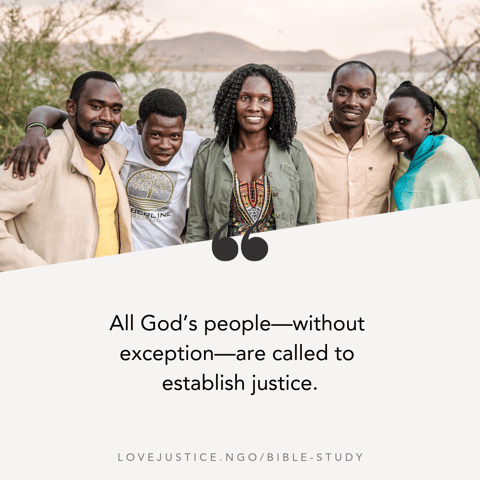Read Revelation 21–22, 1 Thessalonians 5, and Psalm 23.
We noted on the first day of this study that the clearest glimpse of God’s design for humans flourishing and being in communion with Him, before sin stained the picture, is in the first two chapters of Genesis and the last two chapters of Revelation. Today, we read the culmination of the biblical narrative, but the entire Bible is chock-full of signposts leading to the fulfillment of God’s plan, which ultimately means a return to the garden.
The kingdom of God has been described as God’s people, in God’s place, under God’s rule, enjoying God’s blessing. With beautiful imagery we see that one day Christ will return and make all things right (a topic too big for this study). Christ’s return will establish the continuous, global shalom that was intended at the beginning of creation and will be eternal in the New Jerusalem. For now, our mission is to establish God’s kingdom in small ways everywhere we can.
New Jerusalem shalom is inner peace, relational peace, societal peace, and environmental peace (again, not just nature, but our homes, communities, etc, wherever our influence extends). Psalm 23:4 describes what we mean by inner peace: “Even though I walk through the darkest valley, I will fear no evil, for you are with me.” The four types of peace—inner, relational, societal, and environmental—together make shalom. They each impact the others and together make a virtuous cycle. Inner peace is the shalom Jesus gives His followers: “Peace I leave with you; my peace I give you. I do not give to you as the world gives. Do not let your hearts be troubled and do not be afraid” (John 14:27). This peace leads to relational peace. Peace in our relationships leads to communities of peace. When we live in peace in our communities, we can be aligned to care for our world and the other people (and creatures) who live in it. Creating environments of peace allows people who enter in to experience inner peace.
All God’s people—without exception—are called to establish justice. If you’re following the Lord, your individual calling, whatever it is, involves establishing God’s justice in some small way. This could be in how you relate to your children, treat visitors in your home, and interact with customers or clients, or it could be in the way you tackle global problems like trafficking, the refugee crisis, economic injustice, and environmental issues. We should all engage in justice-making in our personal lives, our immediate spheres of influence, and globally through the universal Body of Christ.
But this activity, whatever action we’re each called to, is about submitting our will to Jesus and aligning our heart with His, not solving the problems which trouble us. God is infinite and not limited in any way. He doesn’t need you or me. But oh how He loves for His children to come alongside Him, care about what He cares about, and choose to be used by Him for His purpose. There is no greater joy! We at Love Justice are called to fight the world’s greatest injustices—orphaned children on the streets and human trafficking—but we know full well that we are incapable of making a difference without being obedient to what God asks us to do. These problems will not be solved by clever strategies and diligent effort alone; they will be made right by the mighty hand of God and His outstretched arm, which He will extend in partnership with His Bride.

A Prayer for Today's Study from Across the Globe
Written by Nikki, Executive Chairperson, Africa:
Lord, we see the disconnect between the world you created in the garden of Eden and the suffering in the world around us, and sometimes we feel so overwhelmed by the enormity of the need. Forgive us where we have ignored the plight of the suffering and vulnerable because we have felt overwhelmed, didn't know where to start, or thought that it wasn’t our responsibility. Forgive us where we have attacked it from a worldly position, seeing the issue through our eyes and not through Your eyes of redemption. Today, we set our hearts and minds on You and Your will and ask that You would reveal to us our part in the story and the good deeds that You ordained for us to walk in before the beginning of time. Give us a vision of what that could be like, excite us for the incredible privilege of working with You in bringing Your will to this earth, and put Your passion in our hearts. Strengthen us and equip us with bravery, compassion, and humility so that we might go and push back the darkness, ushering in Your presence and beautiful light.
Reflection Questions
- How has your understanding of “justice” changed over the course of this study?
- When you consider the four types of peace: inner, relational, societal, and environmental, which one is God speaking to you about? Does He want to mend a relationship that has broken down, or is He asking you to help someone in need?
- If God has been stirring in you a conviction or a desire towards acts of justice, what is stopping you from full submission in this area? Are you fearful? If so, of what? Is that fear justified? Or perhaps you just don’t feel moved by the needs of others and you need to ask God to soften you and give you His heart for justice. Or perhaps you don’t trust Him enough to submit your will to His. Talk through the heart of the issue and ask God to reveal to you His truth and His grace and power to equip you for anything He requires of you.
-1.png)






